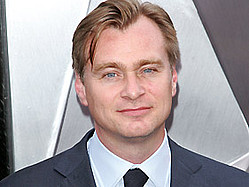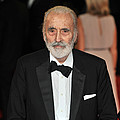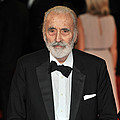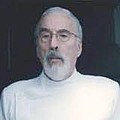And you thought "Inception" was complicated! If director Christopher Nolan signs on to helm "Interstellar," based on a script by his brother Jonathan that incorporates the theories of Kip Thorne, the many dream levels of his 2010 hit could seem like a piece of layered cake comparatively.
From the initial reports of Nolan's involvement, there's not much information, but there's more than enough to get excited over. "The story involves time travel and alternate dimensions and sees a group of explorers travel through a wormhole," reads the Hollywood Reporter write-up. The only other parcel of info comes from the name Kip Thorne, a Caltech theoretical physicist, gravitational physicist and astrophysicist. As is traditional with Nolan films, you have to go deeper.
In the realm of theoretical/astro/gravitational physicists, there are few names — Einstein and Hawking among them — bigger than Thorne. That's because his most well-known work, which has dealt with black holes, wormholes and time travel, is often credited with bringing legitimacy to discussions that previously only took place in the line for the bathroom at sci-fi conventions. So if "Interstellar" is the next Nolan endeavor, it's time to familiarize yourself with Thorne and how his work could make for one badass movie:
Wormholes
We start with a term that most sci-fi fans are at least vaguely familiar with, and Thorne (along with "Contact" author Carl Sagan) is the reason. Wormholes, also known as Einstein-Rosen Bridges, are theoretical shortcuts through space. By entering a wormhole, you could in theory cover enormous distances with minimal effort. The most recent cinematic Einstein-Rosen Bridge allowed Thor to travel from Asgard in a matter of seconds.
In terms of what a wormhole might mean for "Interstellar," the secret could lie in the title. "Interstellar" literally means "located, taking place or traveling among the stars." If our heroes are going to travel among stars, a wormhole may be the only realistic mode of transportation, unless it's a really, really long movie. Nolan would have to employ some serious fiction for this science, since wormholes are still hypothetical at this point and certainly not under our control.
Time Travel
So wormholes are cool, but where does Thorne come in? The concept that Thorne explored when it comes to wormholes incorporated elements of Einstein's theory of relativity and the so-called "twins paradox," where a man travels the universe at the speed of light for a short period time and returns to Earth to find thousands of years have passed. As Thorne explains in his fantastic article "Is time travel allowed?," if that man takes one end of a wormhole with him in his ship, he can create a time machine.
Let's say two brothers — Christian Bale and Joseph Gordon-Levitt for our purposes — both have wormholes that are connected to each other. When you enter the wormhole in Gordon-Levitt's house and walk a short distance, you end up in Bale's spaceship, which actually sits many miles away. After Bale takes his spaceship and his wormhole on that same trip around the universe and returns home, the wormholes have aged in the same manner that their owners have in the previous example, and you have yourself a time machine. Moving from Bale's to Gordon-Levitt's wormhole pushes you forward in time, while going in the opposite direction takes you backward.
With this idea, Nolan can essentially do anything. Just as the mechanics of entering someone's dream in "Inception" opened up creative doors, controlling interspace time travel is a subject waiting for the Nolan treatment. Considering the director's love for family issues, don't be surprised if the twins paradox finds some kind of literal Nolanian interpretation. You can hear the "Inception" horns already, can't you?
Alternate Dimensions
Here's where things get really interesting: The physicists who have studied wormhole time travel and the theory in general disagree on whether a time paradox is possible — you know, the kind Doc Brown in "Back to the Future" kept raving about. What happens if you go back in time and accidentally prevent your own birth? It's this question that divides theoretical physicists and sci-fi movies.
Thorne, like Stephen Hawking, doesn't believe time travel is possible under the laws of physics, but there are some who have found reasoning to believe that any tampering with chronology wouldn't cause time to collapse in on itself, but rather cause the creation of an infinite number of alternate timelines, where whatever happened in your past doesn't matter and anything is changeable. Can you see where this is going? BRAAAAHM
Even at an elementary level of explaining Thorne's theories, the concepts seem rife for a sci-fi take from Christopher Nolan, especially when you start to consider what he did with dreams and "Inception." We'll have to wait and see what (if anything) becomes of "Interstellar," but until then, if you're looking for more of Thorne's work, his most famous book "Black Holes and Time Warps" is a great place to start.










